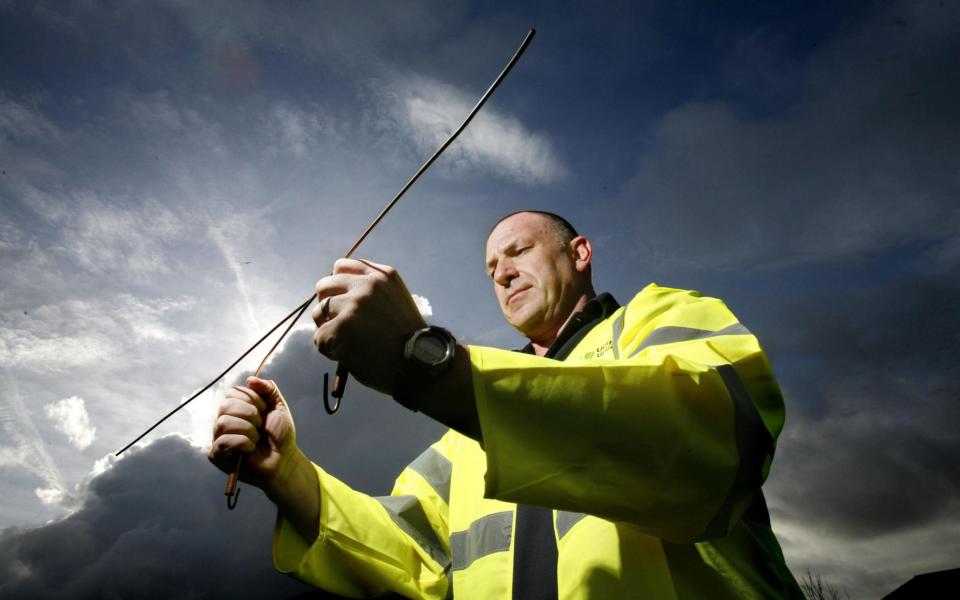Major water companies still divining to find leaks

With the latest technology at their fingertips, modern water companies should be better than ever at finding and fixing leaks. But it turns out many of them are making use of a rather less cutting edge method – magic.
Ten out of 12 major water suppliers in the UK admitted to using “dowsing” or “divining rods” to detect underground water, a method which has been widely discredited by modern science. The rods were once believed to twitch in the hands of a “diviner” to point to underground reserves, a method which is believed to date back to the 15th century.
The practice is used by engineers working for most of the largest water companies, including Severn Trent, United Utilities and Thames Water.
Northern Ireland Water and Wessex Water were the only major suppliers which said they did not rely on esoteric energies to find their leaks.
Companies confirmed that some of their workers prefer this method despite having access to hi-tech digital mapping, drones and even satellites, after science blogger Sally Le Page began making enquiries on Twitter.
.@thameswater@sallylepage You've got to be joking. This is the 21st Century, not the 17th. As one of your customers, will you commit to reviewing your use of this pseudo scientific nonsense?
— (((Alan Henness))) (@zeno001) November 21, 2017
“It’s an old technique used by those who are experienced,” said Stuart White, chief spokesman for Thames Water. “We do not train or instruct our engineers to use divining rods. They might use them to help find a pipe, but it would then be confirmed using other modern techniques,” he added.
A video uploaded to YouTube by United Utilities last year showed one of its inspectors in the north Cheshire area monitoring the energy flows in a customer’s garden to help find the water mains. In the caption United Utilities said “you don’t need special powers” to master the technique and urged viewers to “try it yourself with a couple of bent coat hangers”.
Hi @domneill, although few and far between, some of our techs still use them! But they are only used to detect pipework and voids that may be caused by bursts or collapses! pic.twitter.com/UueOG3zj9U
— Yorkshire Water (@YorkshireWater) November 20, 2017
The inspector said he had used divining rods for about six years and manages to find “a lot of mains through water divining”.
A spokesman for United Utilities said: “We don’t issue our teams with divining rods. However, one or two of our engineers were interested enough to learn how to use them in their spare time.”
We can advise that these are techniques that Scottish Water use to detect pipework rather than underground leaks. ^Jennifer
— Scottish Water (@scottish_water) November 21, 2017
The industry regulator warned companies to “think very carefully” about whether magical sticks are the most efficient and cost-effective tools.
“Ultimately, any company which fails to deliver on the commitments it has made to its customers will face a financial penalty,” an Ofwat spokesman said.

 Yahoo Finance
Yahoo Finance 